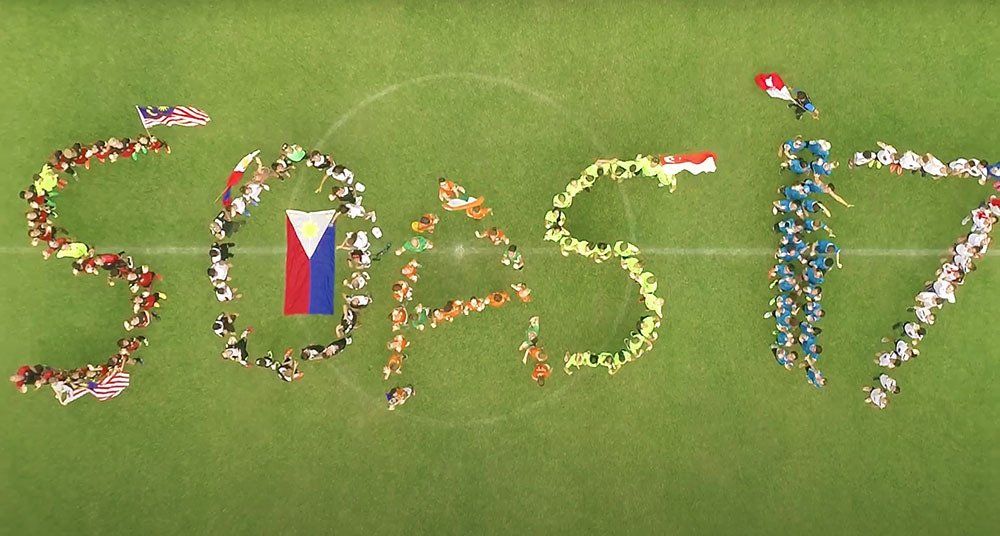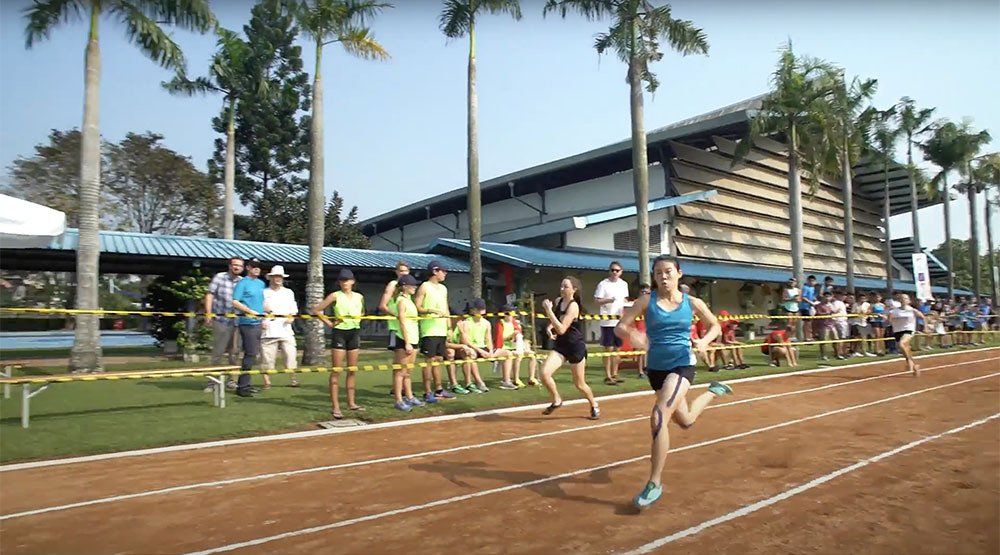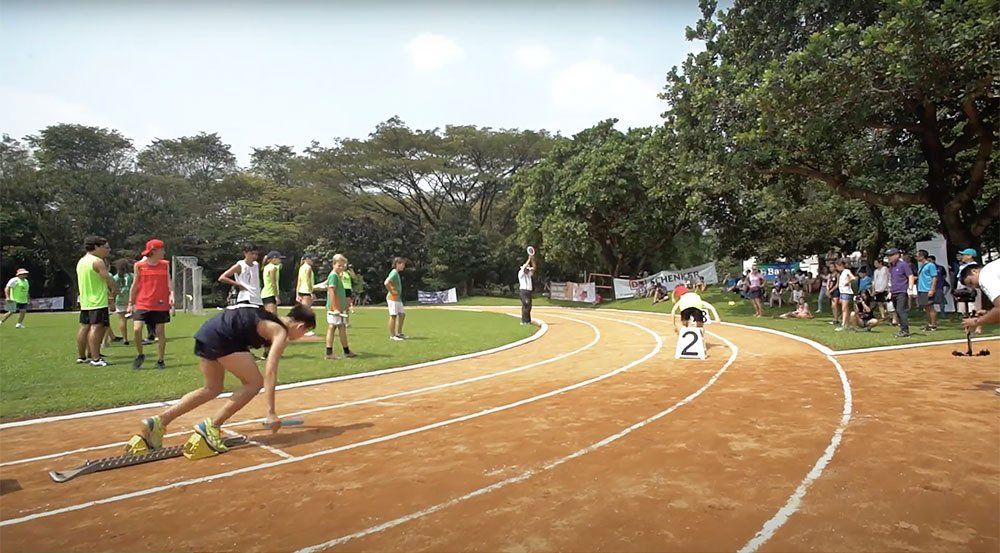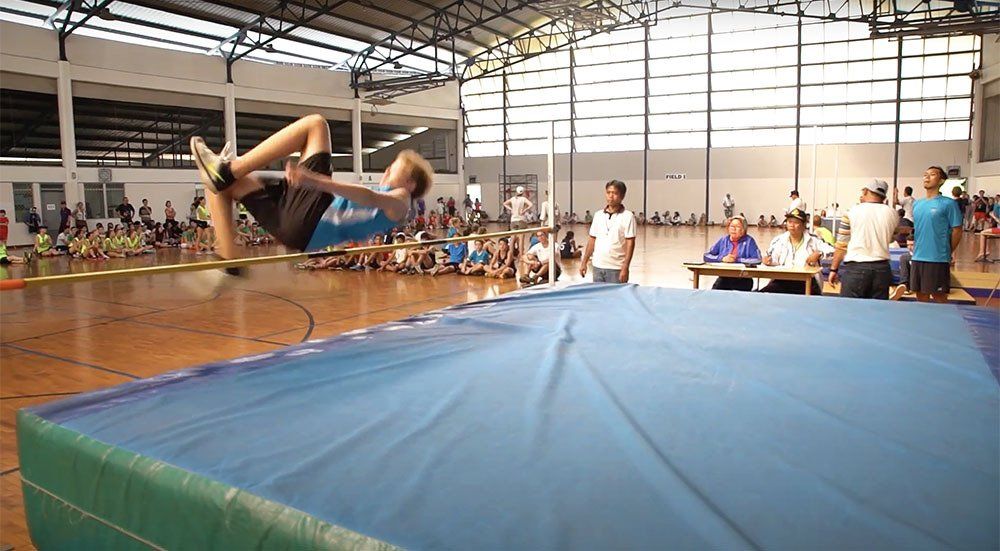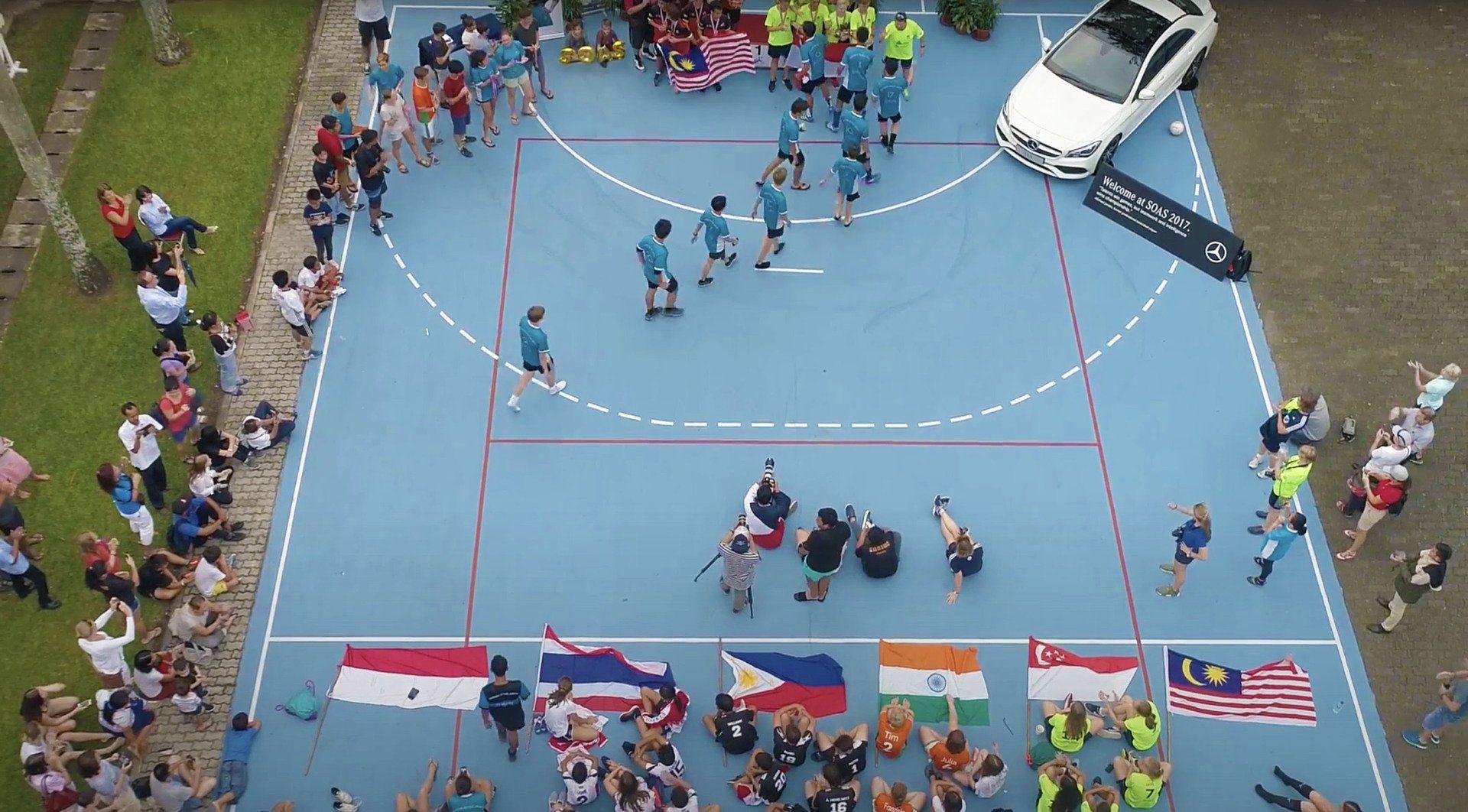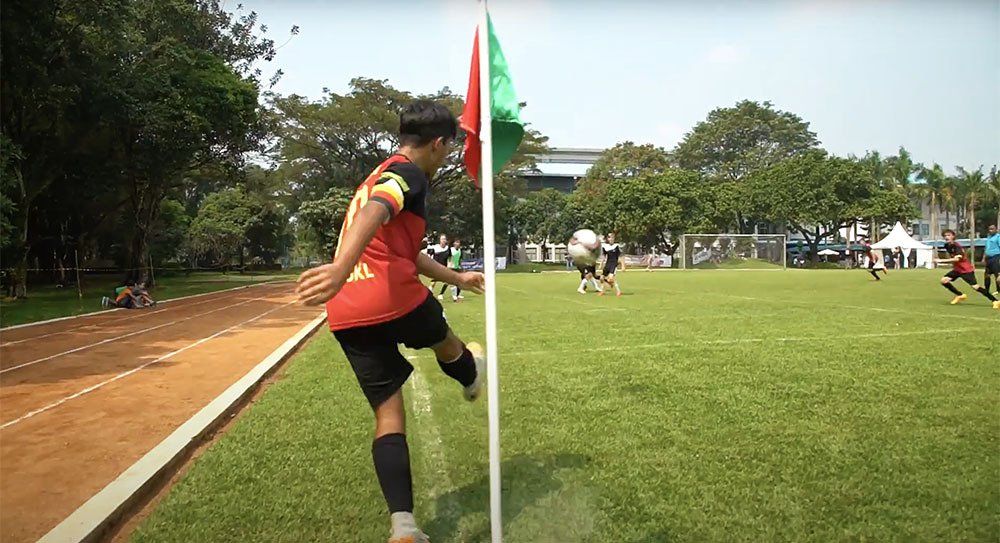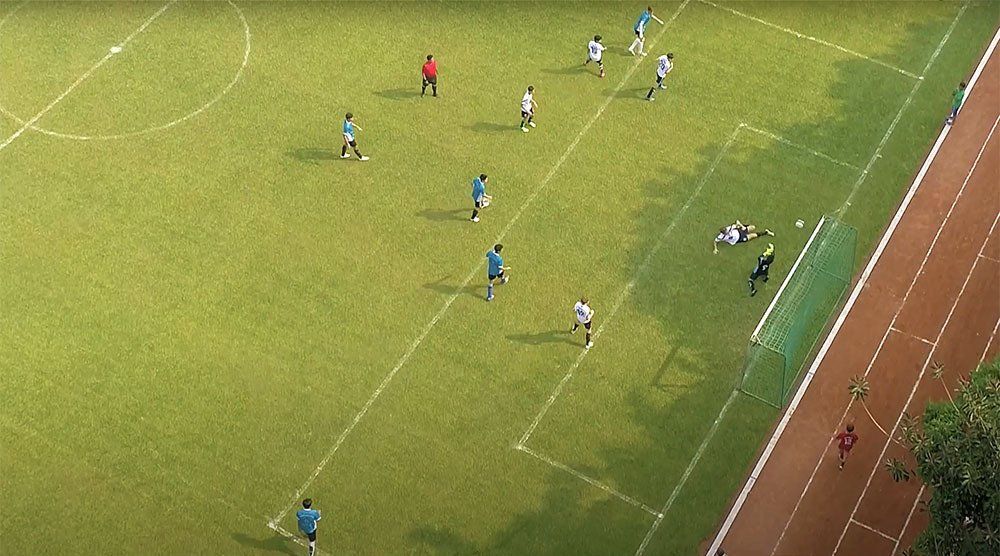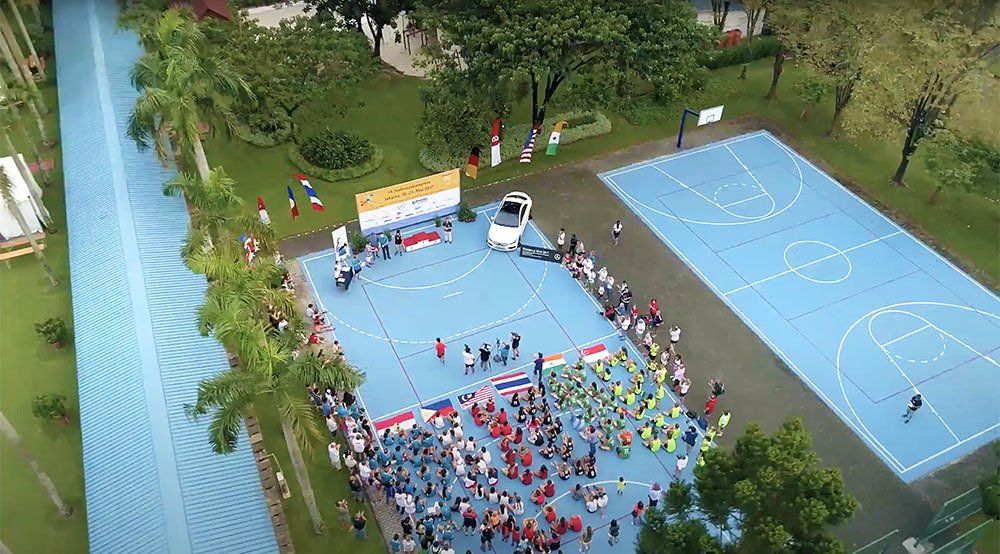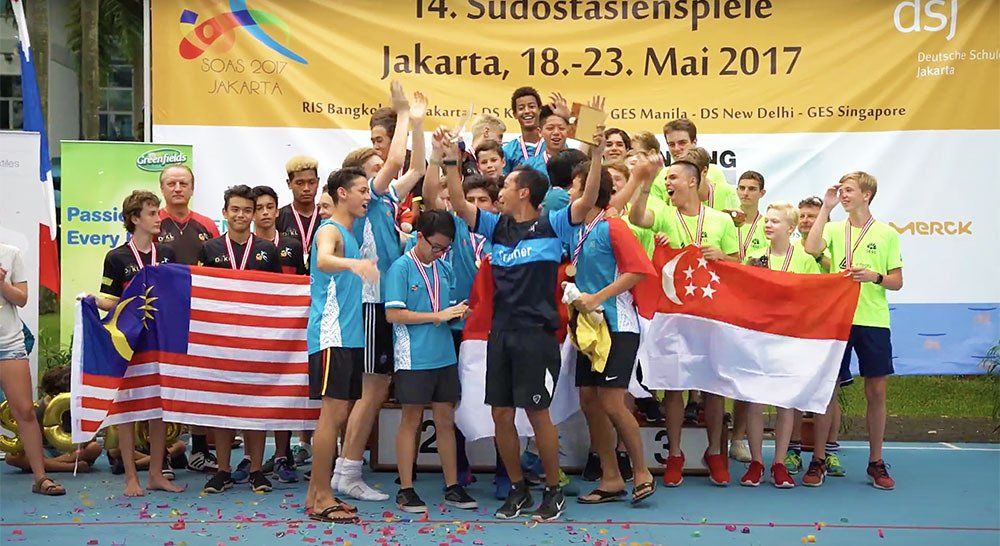Why is Sport so Important to Your Child’s Education?
Published:
Kids today are enchanted by TikTok, YouTube, Netflix, and the latest text message from their friends. Their hands hold cell phones, not a tennis racket. Their feet recline on pillows on the sofa rather than kicking a soccer ball.
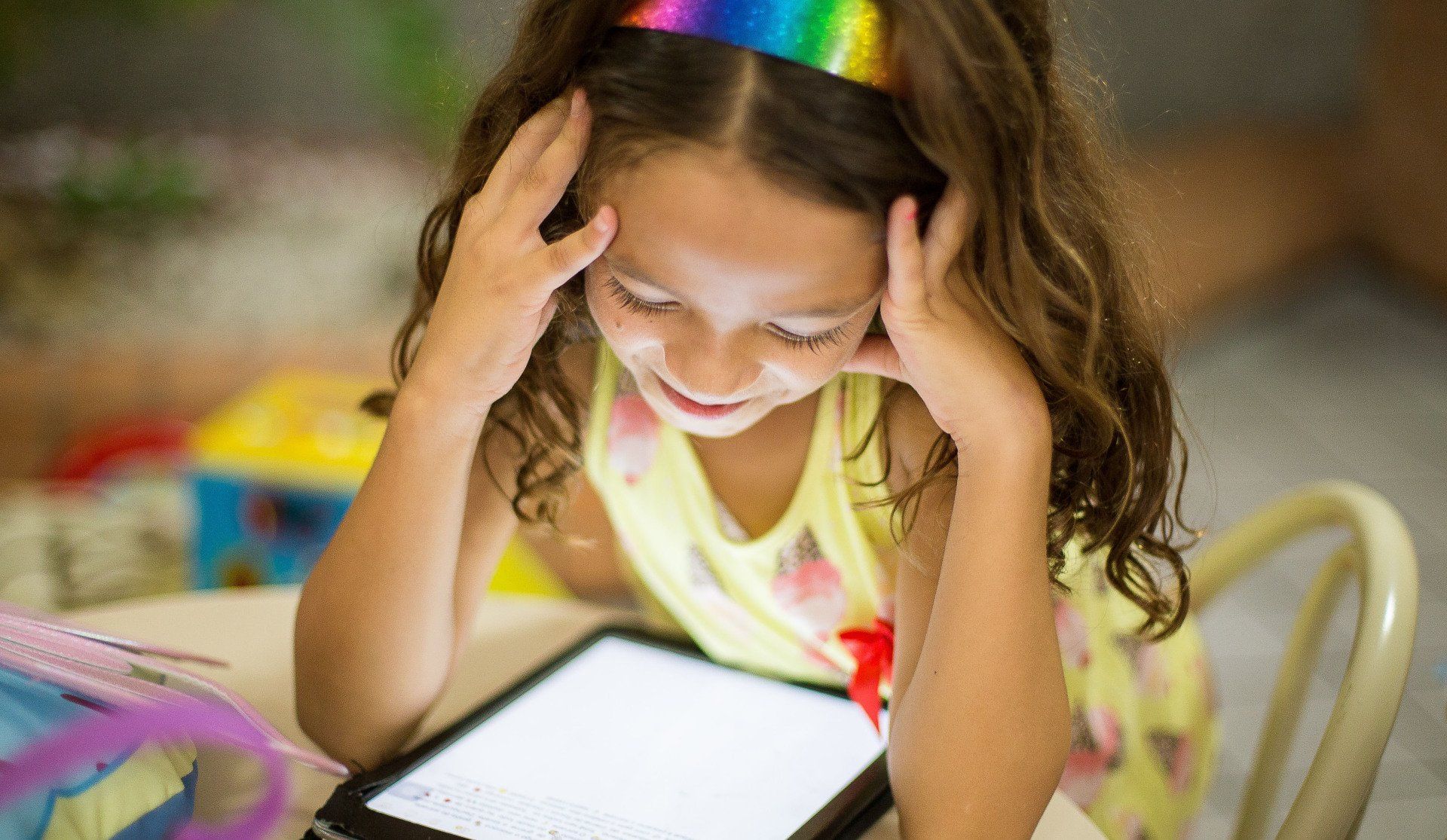
The physical restrictions of the pandemic only exacerbated kids’ reliance on screens. Their physical activity time has decreased significantly - so it is not surprising that children feel neglected and parents, in particular, complain about their offspring's lack of exercise.
There are various troubling consequences as a result.
Many children have lost, or never even gained, basic motor skills that humans have had for generations, like the ability to walk backward, do a somersault, or go for a long walk.
Most disturbingly, they’ve lost the joy of movement. Because they’re out of shape, even basic movement feels exhausting and they’d rather just stay passively behind the screen. It’s no surprise that childhood obesity is on the rise, especially when this lack of fitness is coupled with unhealthy food choices.

One recent report declares that children ages 5-12 years old should accumulate at least 60 minutes of moderate to vigorous-intensity physical activity every day. And the more the better.
At the German School Jakarta (DSJ), we take our students’ physical activity seriously because we know it drastically improves children’s health in the present and in their future lives as adults.
By playing sports, kids increase their bone density (preventing broken bones), improve their sleep (which leads to better cognition and mood), decrease their risk of obesity (and therefore the risk of developing type-2 diabetes), increase their cardiovascular fitness (which prevents heart attacks in the future), and improve their coordination and balance (which could prevent dangerous accidents).
Fortunately, many parents in Indonesia are becoming aware of these positive health effects of exercise. The past perception, that chubby children are “healthy,” has, fortunately, come into question.
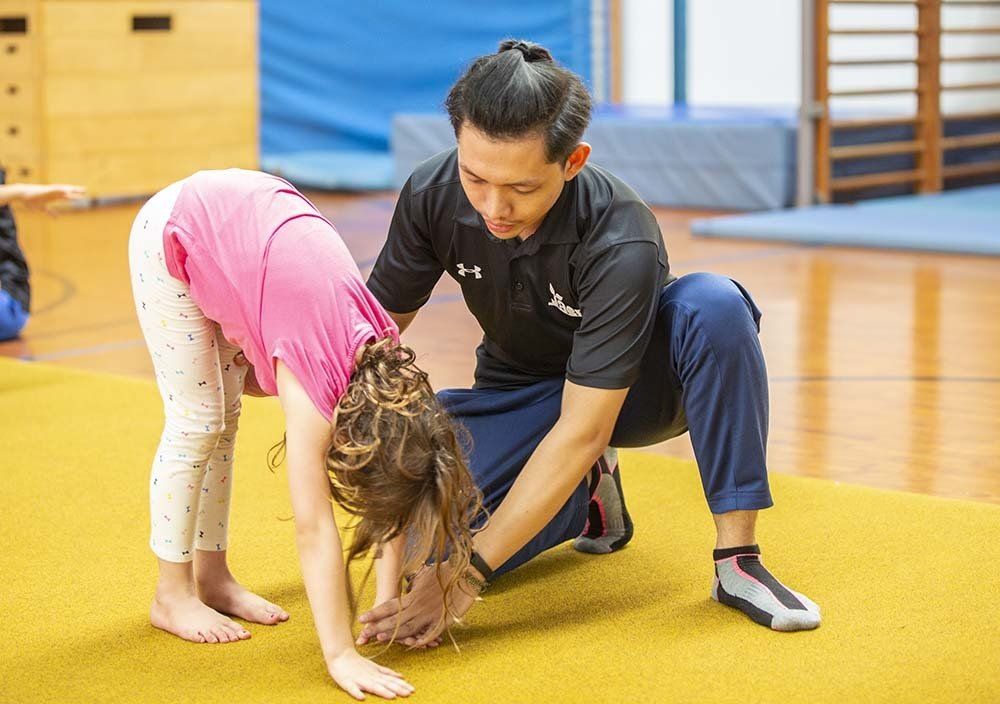
But improving your child’s health is just the beginning. Numerous studies have shown that increased physical activity also promotes brain development, memory, and cognition. It is becoming well-known that moderate to vigorous activity increases brain-derived neurotrophic factor, the protein that supports the health and growth of brain cells. For this reason, many Japanese schools encourage sports practice in the morning before class, and the same is true in Indonesia where sports practice occurs before school on Fridays. Similarly, playing a sport after school can give a student a mental boost to complete homework in the afternoon.
To develop the body-brain connection, it is important to engage in movement every day, especially for young children. The age between seven and eleven is considered to be the “golden learning age”. During this time, children learn basic motor elements particularly well. In fact, kids require physical movement in order to develop highly functioning visual skills. More sophisticated movements promote the development of more advanced visual pathways in the brain. Likewise, coordination is trained in the brain by repeatedly engaging in physical movements that require coordination, like jumping or catching a ball. It’s important for children to slowly and naturally progress their skills in these areas as they grow up. Ideally, sports and activities should challenge them, but never push them too far outside their comfort zone so as to be unpleasant.
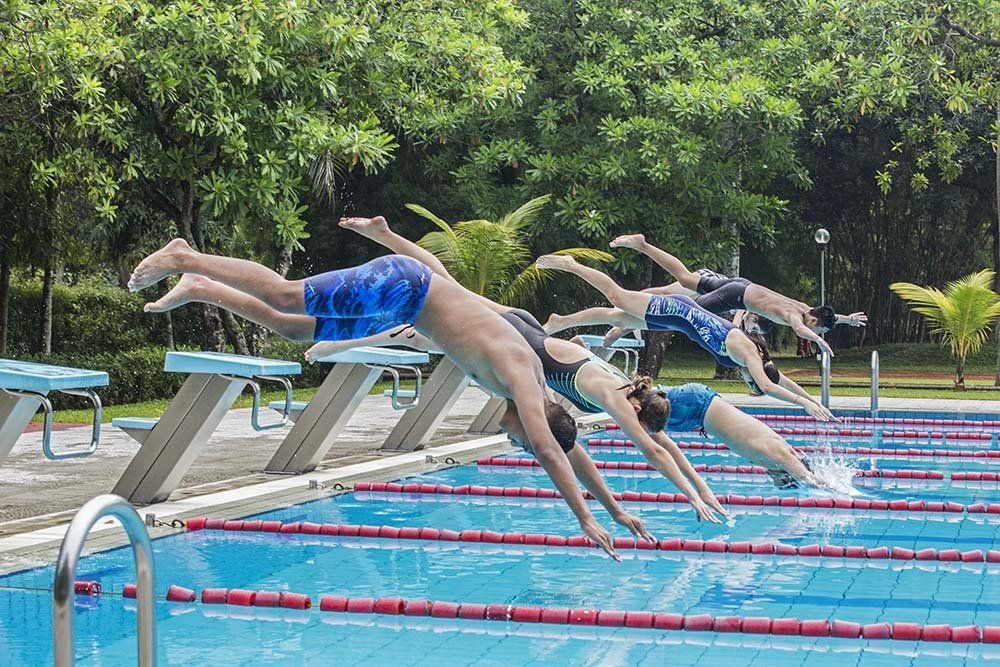
Though a small amount of discomfort is another important benefit to sports. Kids need to learn how to lose a game, but be a “good sport”. They should be respectful to the winning team and also not get down on themselves for losing. They learn resilience by picking themselves up, going back to practice, and trying to win the next game. Another valuable skill that children learn through playing sports is teamwork. As coaches famously say, “there’s no ‘I’ in ‘team.’” Even if your child chooses to play an individual sport, like tennis, they still interact with other players in practice. In order to succeed, an athlete must learn how to work with others, learn from others’ mistakes, be kind to other players, and apply feedback from their coach. These are skills that matter outside of sport too. A child who learns these lessons will be well equipped to collaborate with their peers in class and, in the future, their colleagues at work.
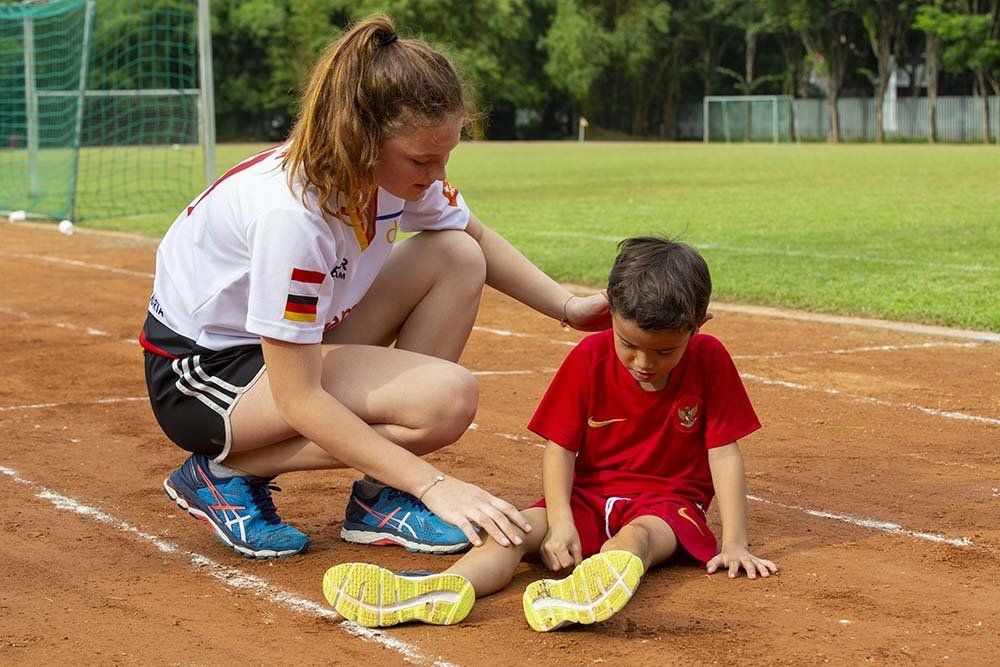
For all of these reasons, at DSJ, we make healthy movement a priority in our educational model.
In fact, physical education is a key part of our program from early childhood education all the way through graduation. We provide plenty of athletic opportunities — from team sports such as football, swimming, tennis, basketball, handball, and gymnastics to popular recreational activities like slack-lining. In fact, slack-lines are set up in the yard so students can use them during breaks. This is an excellent way for them to have fun, clear their minds between classes, and work on their coordination.
All in all, DSJ touts world-class facilities with equipment that is the dream of every sports teacher and athlete. Whether you and your children are looking for recreational or more serious activities with an eye on competitions such as the prestigious Southeast Asian Championships, you’ll find the right activity for them at DSJ.
Moreover, DSJ’s 4.2 ha green, park-like campus inherently invites healthy movement. Students feel safe and eager to explore our scenic campus where there is plenty of space to breathe and thrive nestled against a residential neighbourhood.
Additionally, at DSJ, we understand the importance of role modeling healthy movement to our students. Kids naturally want to imitate the behaviours that the adults in their lives engage in. For this reason, we promote a culture of physical fitness where teachers and sports coaches model how to move and be healthy. The coaches and teachers at DSJ offer extracurriculars that train early skills in sports like football, volleyball, or Taekwondo which are very well received by the students. Not only are the children learning new skills and healthy movement habits, but they’re also building community. In this way, DSJ is more than just a school, but a home where students feel connected to their classmates and instructors.
Ultimately, we see physical excellence as a keystone of your child’s development. By ensuring their coordination, strength, endurance, and fitness skills, we are building your child’s confidence to succeed physically, mentally, and professionally in the long term, creating a culture where physical excellence partners with academic excellence.
When will you visit us?

